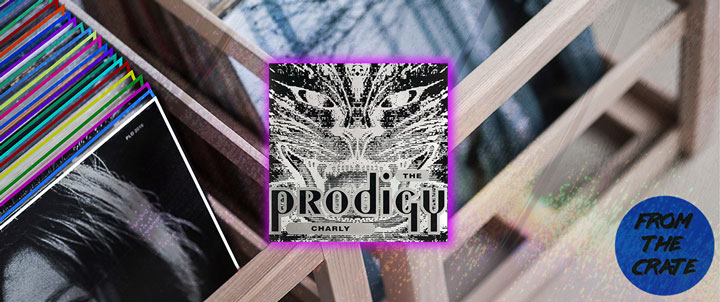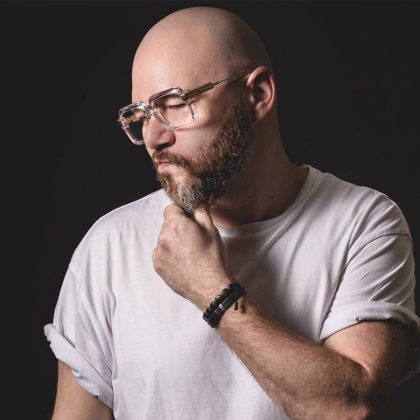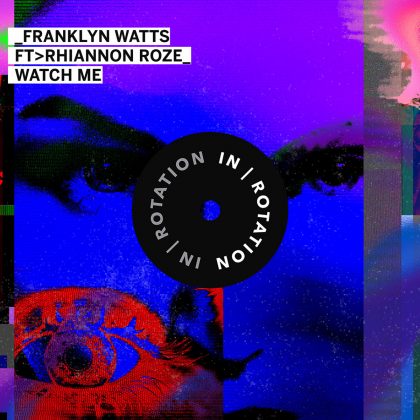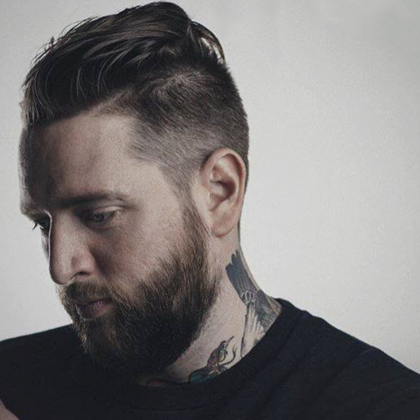The Prodigy “Charly”
“His approach (and the Prodigy approach at large) isn’t about being the best or the most original, but instead, being the most brash and basic, combining known quantities for some sort of synthesis in a very post-modern, ‘90s kind of way.”The birth of our underground brand Factory 93 not only brought on an adrenaline rush reminiscent of the renegade warehouse era of raving—on which Insomniac was founded—but it also had us thinking back to all the people, places and parties that made this whole operation possible. And with that came a burning desire to crack open our collection and dust off the classic records we couldn’t live without. Through our From the Crate series, we break out seminal and obscure cuts alike, imparting some knowledge in the process.

The Prodigy’s “Charly” is still one of the more controversial big records in the annals of dance music history. This goofy but important tune introduced the world to one of dance music’s most polarizing and commercially successful electronic acts of the 20th century. For those too young to remember when electronica hit America, the Prodigy is one of those rare “electronic music bands” that made a big splash both in Europe and the States well before EDM hit Stateside. The Prodigy has shapeshifted quite a bit over the decades, but it’s always been Liam Howlett at the center and a satellite of familiar faces (and voices), like Chief Flint and Maxim Reality, in his orbit. The one thing all the Prodigy records have in common is that they’re all going for “mega” and are completely disinterested in subtlety. It’s pop/punk music with the vocabulary of guitars, breakbeats, and ravey synths.
With cuts and edgy music videos “Smack My Bitch Up” and “Firestarter,” the Prodigy broke the States in the later ‘90s. It was during that era’s big electronica marketing push by the major labels that acts like the Chemical Brothers and Fatboy Slim—and all the other Europeans who got lumped into the big beat/electronica bin—were pushing this aggressive, hip-hop-swaggering, hyper-masculine (and very straight) brand of dance music into the mainstream. But in Europe, the Prodigy had been a known quantity for years, as they got huge during the salad days of UK rave with music that sounded quite different from where their style solidified down the road.
Howlett wasn’t always into the rave scene. The Essex-born producer was originally a B-boy who wanted to be in a big hip-hop group but found it difficult to gain any traction, being both British and white. So, he switched his attention and rode the wave of rave that was hitting Europe in the late ‘80s, especially in his native Britain. Howlett attended his first rave in 1989, aka the “Second Summer of Love” in the UK, as acid house—and dance culture as a whole—took over a nation and eventually birthed rave and all its offshoots: Balearic, chill-out, breakbeat, hardcore, trance, D&B, and everything in between. By 1991, he had a tune called “Charly,” which was released on the still nascent XL Recordings.
Charly Says, a cartoon about a little boy and his cat Charly, was produced by the British government and ran in the ‘70s and ‘80s. This cute little children’s “show,” only the length of an advertisement, usually focused around some sort of simple moral lesson. No doubt, young Howlett—and a generation of soon-to-be ravers—had seen this countless times in their youth, so this would be deeply recognizable to all the young adults pioneering rave in the early ‘90s and would hit all sorts of nostalgic buttons in their ecstasy-addled brains.
“His approach (and the Prodigy approach at large) isn’t about being the best or the most original, but instead, being the most brash and basic, combining known quantities for some sort of synthesis in a very post-modern, ‘90s kind of way.”
At the time, this sort of grabbing of broad pop-culture references and sampling into dance music was still not so common—even though the KLF rose to the charts in the late ‘80s with their sampling of the Doctor Who theme for “Doctorin’ the Tardis.” But pioneering new sounds was never Howlett’s thing. His approach (and the Prodigy approach at large) isn’t about being the best or the most original, but instead, being the most brash and basic, combining known quantities for some sort of synthesis in a very post-modern, ‘90s kind of way. The Prodigy is a blunt object, and this is one of their bluntest pieces of work.
“Charly says, always tell your mum before you go off somewhere” is the main dialog bit this track samples and is built around. It was an ironic twist on this innocent, childish adherence to the rules imposed by adult authority. The rave spirit was about bucking the law and having quick-and-dirty fun as a sort of rebellion to the bleakness of ‘80s austerity. Underlying “Charly” (and the entire Prodigy catalog, really) is a rehashing of a sort of punk spirit of giving your middle finger to your teacher, your boss, the queen, even your mum. That, more than anything, is probably why this song ended up being such a hit (and also why it inspired so many bad-to-just-lazy knockoffs that got old real quick).
“Charly” was the first record released by the Prodigy. It featured a piano house belter, “Your Love,” as well as the murkier, more feral “Alley Cat Mix” of “Charly,” which might be the best iteration of the song and features an extended cat-meow breakdown. Later, the Experience full-length featured this unabashed rework “Trip Into Drum and Bass” version.
“Charly” earned the young Prodigy a bunch of backlash in the press because it was accused of inspiring bubblecore tracks—i.e., music for toddlers reworked for the club—like “Sesame’s Treet” by the one-and-done Smart E’s. But their first album, The Prodigy Experience, was full of rave anthems. Their second album, Music for the Jilted Generation, would see them incorporating more rock and industrial sounds and heavier themes. Their third and last big record, Fat of the Land, was released in 1997 to huge sales around the world, even in America. It appeared by 1997 that American kids were ready to entertain dance music in its more masculine form.
Unfortunately, the Prodigy ran out of ideas after peaking out and released several defanged records that failed to capture the energy or fun of their early work. It’s less that they ran out of ideas and more that they probably never had 10 albums’ worth of things to say to begin with. But rather than chasing the comeback that may never happen, Howlett seems to have called it a day for the Prodigy. In 2015, he announced the band will not release any more new albums. Obviously, there’s nothing holding him to it, but it’s probably a wise move. He always admitted there wasn’t much to his music from a conceptual point of view.
Howlett told SPIN in 1997, at the height of the Prodigy’s fame, that “the political side of their music I’m not into. Like with Public Enemy. I’m not into what Chuck D was talking about. I liked it on a dumb level—the beats, the way his voice sounded. I wanted to hear Flavor Flav going, ‘Yeah, boyee!’ I wanted to hear the dumb aspects of his music, that’s what I was into. I have a philosophy that our music works on a really dumb level.”
For a band that was always about stupid, mindless energy, they already seem to have achieved beyond anyone’s wildest imagination, having three big albums and a slew of hit singles. No matter how you stand on their style now, they’re one of the first and biggest acts to take on rock, rap, and techno in such a poppy, grandiose way. The Prodigy will always hold a unique and bizarre place in the history of dance music.





